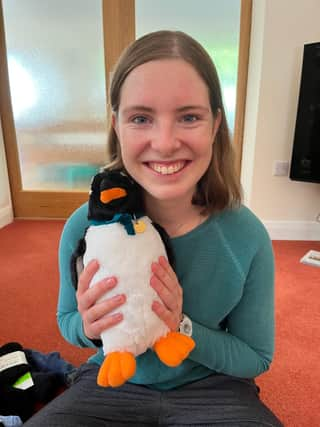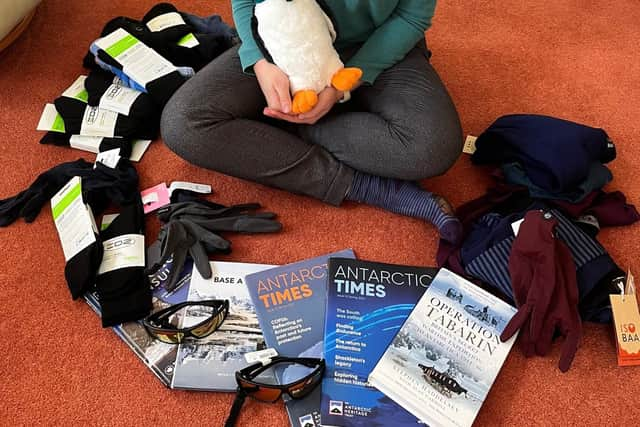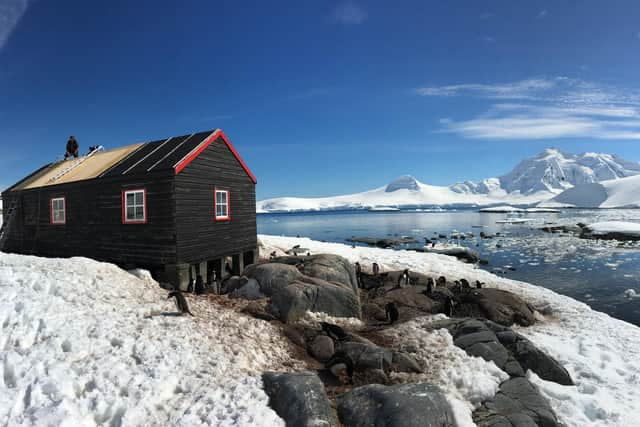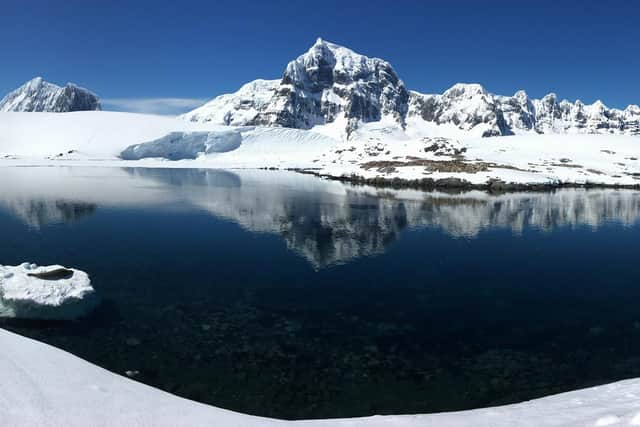Louth's Clare Ballantyne discusses dream job working in world's most remote post office in Antarctica - and with penguins!


Clare Ballantyne is one of four people who have been selected to run the post office in Port Lockroy, on Goudier Island, for four months, which is the UK’s most southerly public post office – affectionately known as the Penguin Post Office – operated by the UK Antarctic Heritage Trust (UKAHT) on behalf of the Post Office.
Former King Edward VI Grammar School pupil Clare has always been a fan of the great outdoors, which led her to pursue a degree and Masters in Earth Science, with a specialty in Oceanography and Climate.
Advertisement
Hide AdAdvertisement
Hide Ad"I’ve always loved being outdoors,” she said, “And I love nature, and even when I was younger I loved the mountains in Scotland and Wales. Antarctica is surrounded by mountains and glaciers, and it’s going to be incredible.”


Clare’s mum Jenny said that her daughter has always been a busy person:
"She’s one of those people who is always so full of energy and well-organised – she has always been one to grasp every opportunity that comes her way.
"We weren’t altogether surprised when she got in – we’ve just told her to go for it and we’re so proud of her.”
Advertisement
Hide AdAdvertisement
Hide AdClare first saw the post advertised on the news, and said she just decided to go for it.


She was told back in June that she was one of the selected candidates, and she’s had to keep it a secret from everyone – well, mostly everyone:
"I did tell my parents and my closest friends,” she admitted, “And we don’t really use social media so it wasn’t too hard to keep it quiet!
"When they told me I was selected, it was surreal,” she recalled, “I remember saying “are you being serious”?!”
Advertisement
Hide AdAdvertisement
Hide AdThe team will be setting off for the island at the beginning of November and staying til March, which is Antarctica’s summer season with temperatures expected to average between 10°c and -10°c – with no running water, flushing toilets or WiFi or telephone connection besides a satellite phone.


“I prefer being cold to being hot actually, and the cold doesn’t really affect me,” Clare laughed, “And we’ll be given plenty of kit to stop us getting too cold.”
Not only will Clare’s job involve running the post office on the island, processing the upwards of 80,000 postcards sent from estimated 18,000 tourists visiting the island, but she will also be involved in the work by the UKAHT to monitor the effects of climate change on the island’s penguin population.
"I’ve always loved penguins,” Clare said, “You can’t look at them without smiling and it will be amazing to see one in the wild and watch them.
Advertisement
Hide AdAdvertisement
Hide Ad"At the time we g, the penguins will be building their nests ready to lay eggs and hopefully, we’ll be able to see the chicks hatch while we’re there.”
The UKAHT monitors six designated historic sites and monuments on the Antarctic Peninsula, and aims to promote its heritage and protect the area from the effects of climate change through spreading the word about its importance.
"This job will allow me to to do that and hopefully to inspire others to help protect these amazing areas,” Clare said, “The UKAHT also does a lot of work in the UK, telling stories of the people who live in Port Lockroy and that will help us with making decisions in the future to protect Antarctica from climate change, because actions in the UK do affect Antarctica.”
To keep up to date on the team’s progress, visit https://www.ukaht.org/